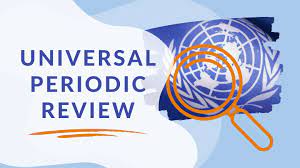The United Nations Human Rights Council (UNHRC) has urged Nigeria to end capital punishment during its Universal Periodic Review (UPR) in Geneva. Member states called for an immediate moratorium on the death penalty, citing the large number of inmates on death row (3,413 as of December 2022) and concerns about due process and potential wrongful executions.
This call highlights the international community’s increasing opposition to the death penalty. While Nigeria’s Attorney General, Lateef Fagbemi, emphasized the government’s efforts to curb human rights abuses through laws like the Administration of Criminal Justice Act and Child Rights Act, the UNHRC’s recommendation reflects ongoing concerns about the death penalty’s fairness and effectiveness.
Mr Fagbemi said Nigeria had begun commuting the death penalty to life imprisonment in line with the correctional services law. Nigeria last official execution was in 2016 in Edo State, South-south Nigeria.
The UPR process, which reviews each UN member state’s human rights record every four to five years, provides a valuable platform for dialogue and scrutiny. Recommendations from the UNHRC and other member states are not binding, but they carry significant moral weight and can guide future reforms.
Nigeria’s human rights report
Attorney General Lateef Fagbemi emphasized the strengthening of public institutions like the National Human Rights Commission, now designated as the official torture prevention mechanism. He highlighted steps like adopting the Child Rights Act and the Violence Against Persons Prohibition Act in many states, showcasing a commitment to legal frameworks protecting fundamental rights. Additionally, the establishment of investigative panels following 2020 protests against police brutality, with subsequent compensation for victims, demonstrated a willingness to address past violations.
Nigerian delegation comprised of Wale Fapohunda, a former Attorney-General of Ekiti State; Olumide Osoba, a member of the House of Representatives and Chairman, House Committee on Justice; Abdulrahman Yukubu, a director at the National Human Rights Commission; and the Solicitor-General of the Federation, Ms Jeddy-Agba.
Nigeria was last reviewed by the 193-member body in 2018 when it made far-reaching recommendations aimed at bolstering the country’s human rights status.
However, the Nigerian government’s claims of its accomplishments in the “protection and promotion of Nigerians rights” are at variance with practical issues in the country.In their separate review of Nigeria’s human rights records, West African countries like Ghana, Togo, and Gabon urged the government to end the death penalty and tackle gender-based violence.
The United States and Canada expressed their concerns about Nigeria’s human rights conditions, calling for the full implementation of recommendations by the EndSARS panels.They said the Nigerian government must prioritise the prosecution and punishment of law enforcement officers indicted for rights breaches.
They also urged Nigeria to decriminalise same-sex marriage. The offence carries a 14-year jail term.But in his response to the issue of LGBTQ, the justice minister said Nigeria’s laws are a reflection of the country’s cultural background.





